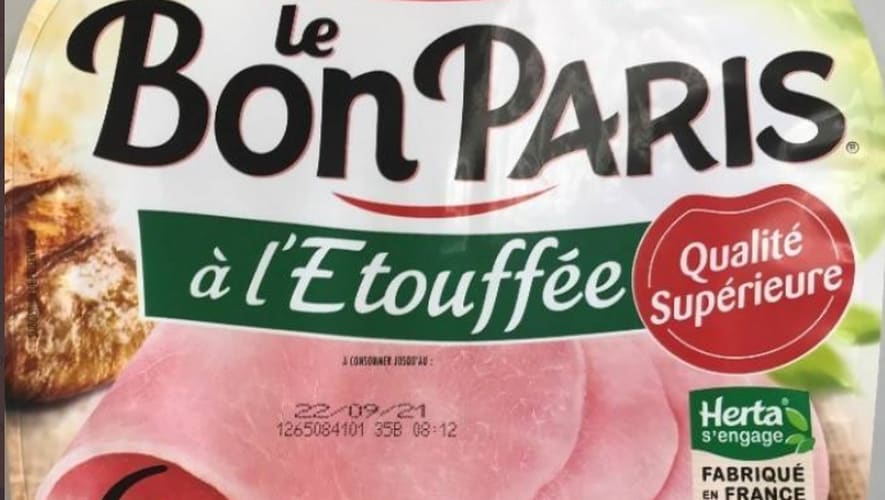What Does “Rappel Jambon” Mean?
The phrase “rappel jambon” literally translates to “ham recall.” It’s a term used in French-speaking regions — particularly in France, Belgium, and Switzerland — when ham products are pulled from supermarket shelves due to potential health risks.
Food recalls, or rappels de produits alimentaires, are initiated when a product might pose a danger to consumers. In the case of ham, the reasons often include bacterial contamination (like Listeria monocytogenes or Salmonella), allergen mislabeling, or packaging errors that could lead to spoilage or incorrect information.
When such an alert occurs, official agencies such as Rappel Conso in France or European Food Safety Authority (EFSA) notify consumers to stop eating the affected product and return it to the store for a refund.
Why Are Ham Recalls So Common?
Ham is one of Europe’s most popular cold cuts — found in sandwiches, charcuterie boards, and family meals across the continent. However, its processing and storage conditions make it particularly sensitive to contamination.
Here are some of the most common reasons behind rappel jambon notices:
Listeria contamination:
Listeria monocytogenes is a bacterium that thrives in refrigerated conditions. Even when stored correctly, if the meat was contaminated during production or slicing, it can spread. Listeria infections (listeriosis) can be dangerous, especially for pregnant women, older adults, and people with weakened immune systems.
Incorrect labeling:
Sometimes, ham products are recalled not because they’re unsafe, but because the label is wrong — for instance, missing allergen information like milk or soy, or incorrect expiration dates.
Packaging defects:
A small tear in vacuum-sealed packaging can allow bacteria to grow, reducing shelf life and posing health risks.
Cross-contamination:
In factories that produce multiple meat products, cross-contact with other ingredients or allergens can trigger a recall.
How Consumers Are Notified
In France and neighboring countries, when a rappel jambon is announced, it’s widely publicized through official food safety websites, supermarket notices, and news outlets.
Websites like rappel.conso.gouv.fr (France’s official recall portal) publish all ongoing recalls with product names, barcodes, batch numbers, and expiration dates. Supermarkets such as Carrefour, Leclerc, or Intermarché also display posters at store entrances to alert customers.
In addition, modern technology has made recall alerts more accessible. Many consumers now receive email or SMS notifications from apps that track food safety alerts. This transparency helps prevent foodborne illnesses and ensures accountability in the supply chain.
What To Do If You Have a Recalled Ham Product
If you find out that the ham in your fridge is part of a recall, don’t panic — but act quickly. Follow these steps:
Do not consume it.
Even if it looks or smells fine, bacteria like Listeria can survive and grow without obvious signs.
Check the product details.
Look at the batch number, brand, and expiration date. Compare it with the official recall notice.
Return or dispose of it safely.
Most stores will offer a full refund. If you prefer to discard it, seal it tightly before throwing it away to avoid contaminating other food.
Clean surfaces.
If the recalled ham was opened or stored in your fridge, clean surfaces and utensils with hot water and disinfectant.
Monitor your health.
If you have consumed recalled ham and experience symptoms like fever, nausea, or diarrhea, contact a healthcare provider immediately.
The Bigger Picture: Food Safety and Consumer Trust
Each rappel jambon case is a reminder of how delicate and complex the modern food supply chain is. Food producers and retailers must meet strict hygiene and labeling standards — but occasional lapses still happen.
Thankfully, Europe’s traceability systems are among the most advanced in the world. From farm to packaging to distribution, each step is monitored. When a problem is detected, rapid communication ensures minimal harm to consumers.
However, these recalls also raise broader questions:
Are industrial meat production methods sustainable and safe?
How can consumers make informed choices in a globalized food market?
Should there be stricter oversight of processed meats?
How Consumers Can Stay Informed
To protect yourself and your family, you can:
Regularly check recall sites like rappel.conso.gouv.fr or foodwatch.org.
Buy from reputable brands that prioritize traceability.
Follow proper storage and cooking guidelines.
Stay informed through credible news sources rather than social media rumors.
Conclusion
The phrase rappel jambon may sound like just another food alert, but it represents something much deeper — our ongoing responsibility to ensure food safety and transparency. Every recall helps strengthen the system, reminding us that vigilance, accountability, and awareness are key ingredients in keeping our meals — and ourselves — safe.


Dining and Cooking